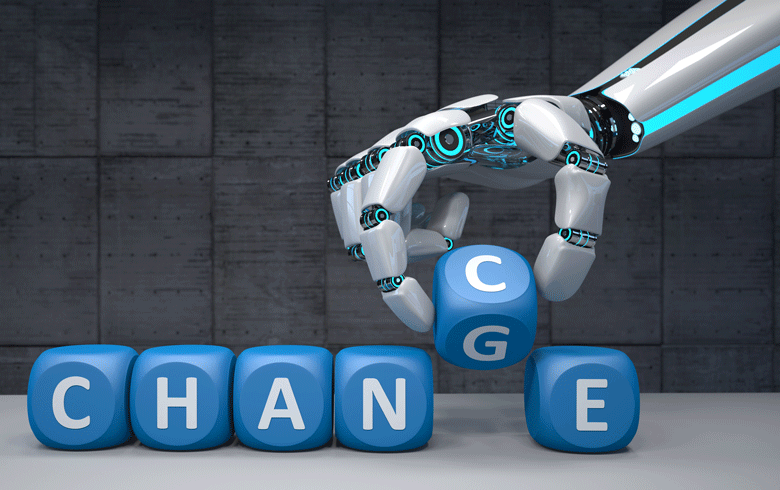

When Dubai’s 3D printing strategy was first announced, achieving a target of 25 per cent of 3D printed buildings by 2030 was considered impossible by most. But the more we applied our minds to it, the more it seemed achievable. After all, we work in a country where setting impossible targets often pushes you to do your best.
Obstacles to innovation
Construction industry players – not just regionally, but globally – are used to doing things in a certain way, which makes it difficult to change. There is also the question of testing new technologies on site, which can never be done at the risk of structural stability.
We have to be sure of the product before we test it, or create a controlled environment to trial it. This can be quite burdensome for many companies, especially smaller ones that cannot accommodate these added costs.
 The fragmented nature of the industry is often its downfall. Convincing all parties to agree on a solution can be tricky. Furthermore, people want immediate results.
The fragmented nature of the industry is often its downfall. Convincing all parties to agree on a solution can be tricky. Furthermore, people want immediate results.
Due to the industry’s delivery-oriented nature, construction projects could be stalled if a technology does not deliver promised results. This can become a major problem, especially if these technologies have already been worked into a contract.
The labour-intensive nature of the Middle East construction sector is another factor. For now, the cost of labour is far cheaper than the cost of using robots or automated systems to do the tasks.
Having said that, the industry is not stagnant. Younger people are propagating change, and as technology evolves, it will become cheaper, making adoption easier.
We’ve tried to make our business smarter by adopting apps and a ‘mobile’ way of doing business. This helps us collect information to analyse, predict and prevent problems. At the same time, we are trying to make things simpler, which may sound contradictory. You can often overdo technology so much that you cannot achieve progress. We want to get back to the basics while at the same time doing these basics better.
Modular construction
We are actively looking at modular construction, and have tested drones for surveillance on one of our projects. Just recently, we tested exoskeletons on site – it is an expensive technology, and we gave our feedback to the supplier on what worked best for us.
Our IT department is focused on developing apps for safety and gathering information. One of the problems we faced in the past was having adequate accurate data. For instance, cost meetings are now conducted with information we have collected in a ‘smart’ way. The meetings are now used for solutions.
The safety app works on the principle of ‘action notices’, whereby managers can take photos of potential hazards on site and enter them into the app alongside relevant metadata. The app uploads this data to the system, and this is later used during our trainings and workshops.
The adoption of technologies such as 3D printing and robotics will be the norm in the coming five years. Costs and materials will get cheaper, making it easier for the industry to adapt to these changes.
Collaboration among stakeholders could smooth the process, but this is still a competitive industry with very tight margins. There is an awareness that we need to work closely with academia and startups, which is a step in the right direction.
We believe it will be possible to have an industry-wide adoption of technology when every person in the business is convinced we need it.
Innovation awards
 At Alec, innovation is one of our core values. We recently concluded our annual company-wide innovation awards, which aims to encourage employees to submit ideas of how things could be done better.
At Alec, innovation is one of our core values. We recently concluded our annual company-wide innovation awards, which aims to encourage employees to submit ideas of how things could be done better.
We received almost 200 ideas this year, out of which we are planning to implement more than 50. With every passing year, we want to double our drive to adopt new initiatives.
We may not be fully ready for more advanced technology such as exosuits, but we are not limiting our mindsets. When the time comes, we know we will be ready for it. The next few years will be phenomenal for this industry. Alec will be taking the lead in this transformation.
About the authors
 Hercu Viljoen (left) is Alec’s managing director for related businesses; Imad Itani (right) is innovation manager
Hercu Viljoen (left) is Alec’s managing director for related businesses; Imad Itani (right) is innovation manager
You might also like...

Rainmaking in the world economy
19 April 2024

Oman receives Madha industrial city tender prices
19 April 2024

Neom seeks to raise funds in $1.3bn sukuk sale
19 April 2024

Saudi firm advances Neutral Zone real estate plans
19 April 2024
A MEED Subscription...
Subscribe or upgrade your current MEED.com package to support your strategic planning with the MENA region’s best source of business information. Proceed to our online shop below to find out more about the features in each package.






